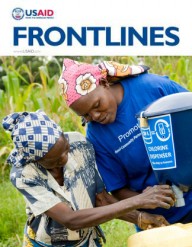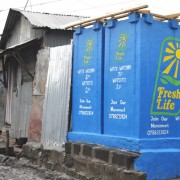 CommCare is easily customizable and includes pictures and voice.
Dimagi
CommCare is easily customizable and includes pictures and voice.
Dimagi
 CommCare is easily customizable and includes pictures and voice.
Dimagi
CommCare is easily customizable and includes pictures and voice.
Dimagi
The shortage of health workers in the developing world is unanimously accepted as one of the key constraints to improving public health services to the poor. Since 2005, India has trained and deployed more than 850,000 community health workers (CHWs), who play a crucial role in providing life-saving services in areas that traditional medical providers struggle to reach. Training, supervision and evaluation of these health workers are major challenges to ensuring that the care they provide is comparable to that of traditional medical providers.
CommCare is a mobile case management tool developed by Dimagi, a health and technology social enterprise, to help health workers provide better care by managing enrollment, support and tracking of clients and activities on their mobile phones. It encourages CHWs to enroll all eligible clients, to conduct more timely visits with patients, and to correctly follow procedures and clinical protocols. It also contains checklists and learning resources to help CHWs promote healthy behaviors to reduce mortality and disease in poor populations.
A CHW can use the app, complete with illustrations and audio cues, to ask questions about the type of pain a patient is experiencing, track the patient’s answers, and provide treatment recommendations across a range of health issues.
As the health workers play an increasingly important role in providing health care to the poor, effectively scaling and managing networks of CHWs will continue to be an important challenge. In low-resource settings, Dimagi’s Stage 1 pilot demonstrated that CommCare can empower CHWs at a cost of $111 per year, compared to government training programs that cost roughly $1,500.
Because the CommCare platform is easily customizable to users’ needs and can translate into multiple local languages and dialects, it can adapt and scale widely to meet the needs of different NGOs, public health organizations, research institutions and governments that manage networks of CHWs.
In 2010, Dimagi received Stage 1 funding from DIV to establish proof of concept for CommCare. At Stage 1, Dimagi worked with 11 NGOs in nine states. Across these NGOs, 83 American Schools and Hospitals Abroad used CommCare to track nearly 5,800 clients. Dimagi re-competed and won Stage 2 funding to increase its field team, further develop the evidence base for CommCare, and build capacity to bring the app to scale. With Stage 2 funding, Dimagi aims to expand its number of partnerships to 40 new programs and deliver CommCare to 8,000 new CHWs in two years.













Comment
Make a general inquiry or suggest an improvement.